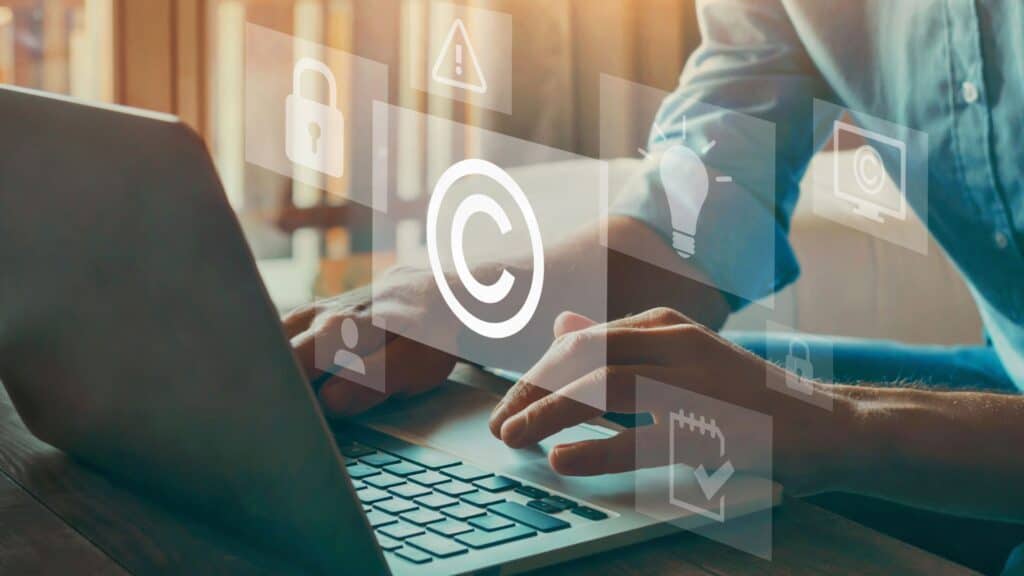Intellectual property (IP) crime – such as counterfeiting, brand impersonation, and trade mark infringement poses a growing threat to UK businesses. The sale of fake goods alone costs the UK economy billions each year, and small businesses are often the most vulnerable.
Recent data indicates that the UK continues to grapple with significant issues related to counterfeit goods. In December 2024, authorities seized counterfeit items valued at approximately £2.75 million during raids in north London.
Additionally, in July 2023, Operation Vulcan conducted a record-breaking seizure in Cheetham Hill, Manchester, confiscating over 580 tonnes of counterfeit goods, including clothing, drugs, illicit tobacco, nitrous oxide canisters, and counterfeit vapes. This operation marked the largest single seizure in Europe in nearly two decades, with an estimated loss to criminals amounting to £87 million.
These incidents underscore the persistent and evolving nature of the counterfeit goods market in the UK, highlighting the ongoing challenges faced by authorities and industries in combating this issue.
So, how do you protect your business? Here’s what you need to know about spotting, preventing, and enforcing your IP rights.
What Is IP Crime?
IP crime occurs when someone uses a protected trade mark, design, copyright, or patent without permission. This includes:
- Counterfeit goods: Fake versions of branded products, such as designer handbags, electronics, and pharmaceuticals.
- Trade mark infringement: When another business uses a name or logo similar to yours, misleading customers.
- Copyright theft: Unauthorised use of written content, images, software, or creative works.
The Cost of IP Crime in the UK
- The UK government estimates that IP crime results in annual losses of over 86,000 jobs across industries.
- In 2023, the Police Intellectual Property Crime Unit (PIPCU) seized £13 million worth of counterfeit goods in just one year.
- 32% of consumers admitted to unknowingly buying counterfeit goods online, highlighting the growing problem of brand impersonation.
Case Study: The Dangers of Fake Pharmaceuticals
The pharmaceutical industry is one of the hardest hit by counterfeiters. In 2021, UK authorities seized over 3 million fake and potentially dangerous medicines. For small businesses in health and wellness, unlicensed sellers copying their brand could put consumers at risk and damage their credibility.
Why Small Businesses Are at Risk
While large corporations have dedicated legal teams to tackle IP crime, smaller businesses often lack the resources to monitor and enforce their rights. Yet, they are frequent targets of copycat brands and counterfeiters.
- Many startups don’t realise their business name or logo is being misused until customers complain.
- Online marketplaces and social media have made infringement easier and harder to detect.
- Fake goods are often produced overseas, making enforcement more complex.
Case Study: A Small Business vs. a Copycat Brand
A UK-based skincare brand discovered a foreign manufacturer selling identical products under their trade mark. Customers unknowingly bought the counterfeit version, leading to bad reviews and complaints. The business had to fight to remove the fake listings and reclaim its reputation.
How to Protect Your Business from IP Crime
1. Register Your IP Rights
The best defence against IP crime is strong legal protection. If you haven’t secured a trade mark or registered design, your brand is at risk.
Need help securing your IP? NBR provides expert advice on trade mark registration and enforcement.
2. Monitor for Infringement
Proactively monitoring your IP can prevent bigger problems down the line. Consider:
- Trade mark watch services to detect copycat brands early.
- Checking online marketplaces (Amazon, eBay, Alibaba) for counterfeit goods.
- Google Alerts to track unauthorised use of your brand name.
3. Take Action Against Infringement
If you discover someone infringing on your IP:
- Contact them directly with a cease-and-desist letter.
- Use online reporting tools on platforms like Amazon and Facebook to remove fake listings.
- Escalate through enforcement bodies if necessary.
4. Report Counterfeiters and IP Crime
UK businesses can report IP crime to several enforcement bodies, including:
- Trading Standards: Handles counterfeit goods and unfair trading practices.
- Police Intellectual Property Crime Unit (PIPCU): Investigates large-scale IP crime.
- The Intellectual Property Office (IPO): Provides guidance on legal action.
5. Seek Expert Advice
Navigating IP crime enforcement can be complex. Seeking professional support ensures you take the right steps without unnecessary costs or delays. At National Business Register (NBR), we help businesses protect, monitor and enforce their IP rights.
IP crime is a growing threat, but businesses that take proactive steps can protect themselves. By registering your IP, monitoring for infringement, and enforcing your rights, you can stop counterfeiters before they damage your brand.
How National Business Register Can Help Protect Your Brand
At National Business Register, we recognise that your brand is one of your business’s most valuable assets. Our team of IP experts can guide you through the complexities of brand protection. Whether you’re a start-up or an established business, we’re here to help you secure the unique aspects of your brand, ensuring it remains protected against imitation and misuse. Contact us to learn how we can support you in building a brand that’s not only memorable but also legally safeguarded. You can email us at info@nbrg.co.uk or calling 0800 069 9090.
Don’t leave your IP to chance – let’s protect your business together.







